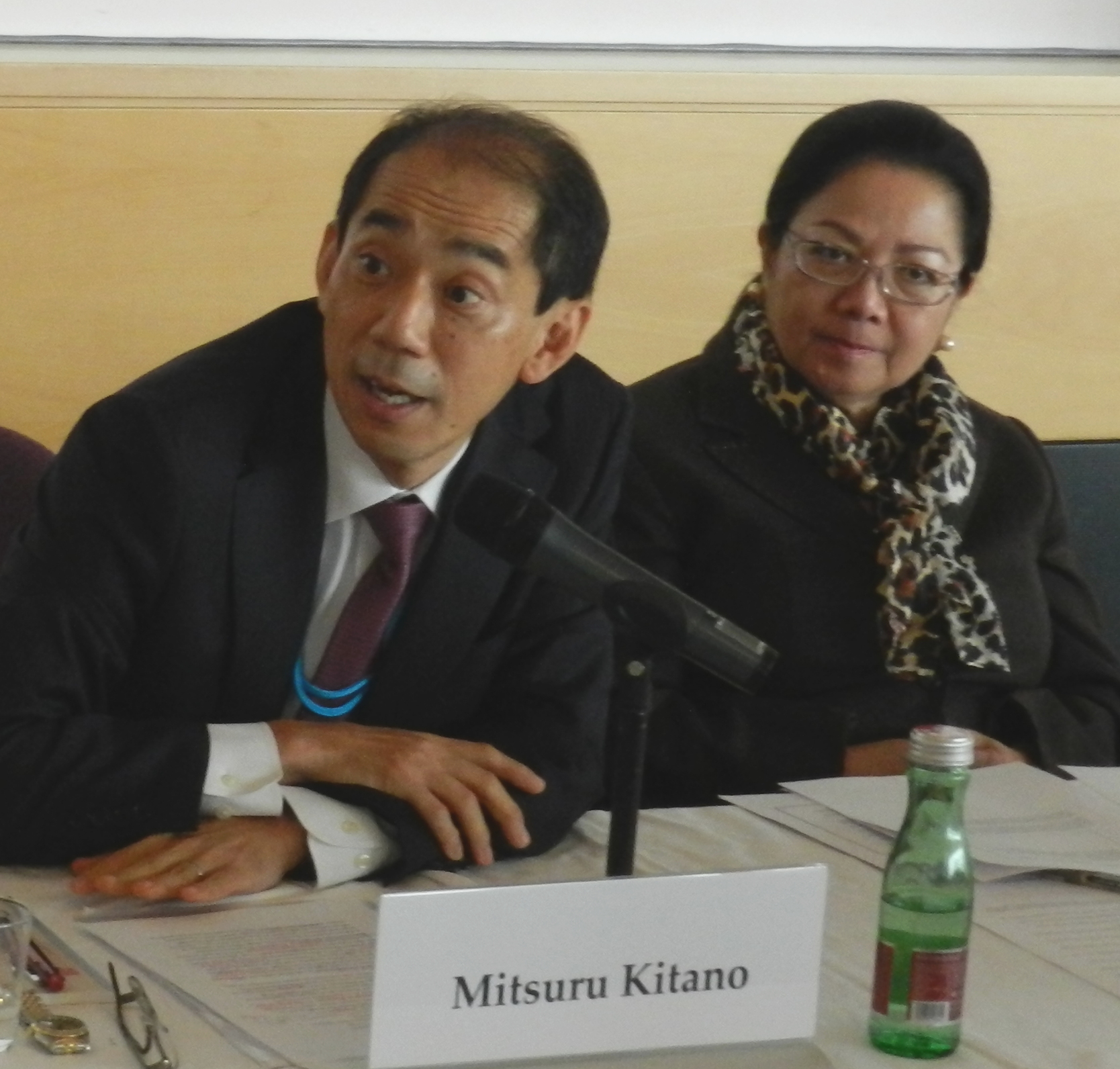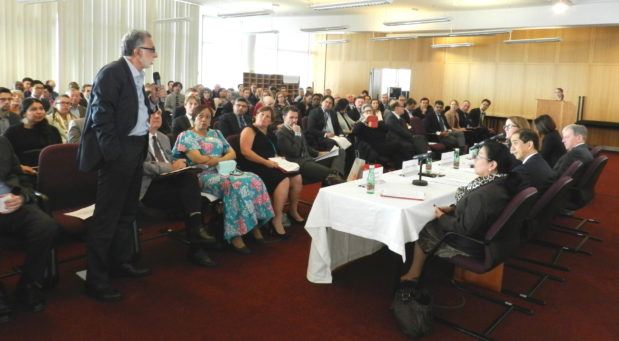
On 17 October 2017, the VCDNP, in collaboration with the Permanent Mission of Ireland to the International Organizations in Vienna, held a briefing and a discussion on the Treaty on the Prohibition of Nuclear Weapons (TPNW). The Permanent Mission of Japan to the International Organizations in Vienna hosted the event, which was attended by more than a hundred people. Moderated by the VCDNP Executive Director Laura Rockwood, the panel featured four speakers: Ambassador Tom Hanney (Ireland), Ambassador Mitsuru Kitano (Japan), Ambassador Maria Zeneida Angara Collinson (Philippines), and the VCDNP’s Gaukhar Mukhatzhanova.

Ambassador Hanney discussed the motivations of states that supported and promoted the negotiation of the TPNW, highlighting in particular concerns over the humanitarian impact of nuclear weapons. He underscored the view that the new Treaty is fully compatible with the Treaty on the Non-Proliferation of Nuclear Weapons (NPT) and linked the pursuit of the prohibition on nuclear weapons to the obligations under Article VI of the NPT to pursue good-faith negotiations toward nuclear disarmament. He further addressed some of the criticism directed at the TPNW, including with regard to safeguards requirements and disarmament provisions. Ambassador Hanney argued that the TPNW parallels the NPT’s requirement of comprehensive safeguards and noted that states that have an Additional Protocol in force are required to keep it as a “minimum baseline” under the TPNW.
Ambassador Kitano provided an “outside” perspective on the TPNW, as Japan did not take part in the negotiations of the Treaty. He underscored that, similarly to the TPNW supporters, Japan strives for a world without nuclear weapons, but argued that a legal framework for complete elimination would be needed when the overall number of nuclear weapons reaches “a very low level.” After introducing the concept of a “nuclear shadow” – a combination of factors such as the number of nuclear weapons, nuclear doctrines and political significance of nuclear weapons in a given region – he argued that regions where a nuclear shadow is imminent need to take a different approach to nuclear disarmament. He then emphasized the importance of taking into consideration national security concerns and involving the nuclear weapons possessors in any disarmament-oriented process.
Ambassador Collinson discussed the Philippine’s motivation for participating in the TPNW negotiations and subsequently signing the Treaty. She highlighted in particular the country’s constitutional provision that stipulates the pursuit of a policy of freedom from nuclear weapons on the territory of the Philippines. Furthermore, the Philippines is a party to the Southeast Asian Nuclear-Weapon-Free Zone (SEANWFZ), which bans nuclear weapons activities such as possession, stockpiling, transport, testing, and use within the zone, and also includes the continental shelf and exclusive economic zones of State parties. Other SEANWFZ members are Brunei Darussalam, Cambodia, Indonesia, Laos, Malaysia, Myanmar, Singapore, Thailand, and Vietnam.
Ms. Mukhatzhanova reviewed the TPNW negotiation process and some of the issues that States found harder to agree upon than others. Such issues included the prohibitions on nuclear testing, transit and the threat of use of nuclear weapons, as well as provisions on safeguards and the accession of nuclear armed States. She suggested that time constraints affected the negotiations, and more time and a preparatory process could have helped with resolving issues related to verification and nuclear weapons elimination provisions. She also noted the importance that the majority of the negotiating States attached to ensuring that the Prohibition Treaty did not contradict the NPT. On the issue of safeguards, Ms. Mukhatzhanova said it was regrettable that the TPNW did not advance the promotion of the Additional Protocol. However, she added, while it was logical for the Treaty to require all States parties to adopt the Additional Protocol, it was not realistic to expect such an outcome given existing disagreements on the status of this instrument in other forums.
With regard to the relationship between the TPNW and the NPT review process, panel participants expressed the view that NPT States parties should focus attention on further disarmament steps, including those agreed in the 2010 Action Plan. Both Ambassador Hanney and Ambassador Kitano highlighted the importance of advancing transparency and reporting on nuclear arsenals, and Ambassador Hanney and Ms. Mukhatzhanova also argued for greater engagement among States parties on technical disarmament verification solutions. Ms. Mukhatzhanova argued that the nuclear-weapon States should present their disarmament vision and identify priorities and plans for practical steps for the 2020 NPT review cycle.

A lively Q&A session followed the panel presentations, during which representatives of several nuclear-weapon States reaffirmed their commitment to a step-by-step disarmament process and expressed concerns about the compatibility of the TPNW with the existing regime and the “divisive approach” they believe the Treaty represents. Another commenter countered that the TPNW supporters and signatories should not be “apologetic” about the new treaty and its relationship with the NPT. Other audience members asked questions about specific treaty provisions, the reasons for the lack of participation of the Vienna-based international organizations in the TPNW negotiations, and the next steps for the new Treaty, nuclear disarmament and the NPT review process. Some of the audience members suggested that a follow-up event was needed to discuss the latter issue in particular.